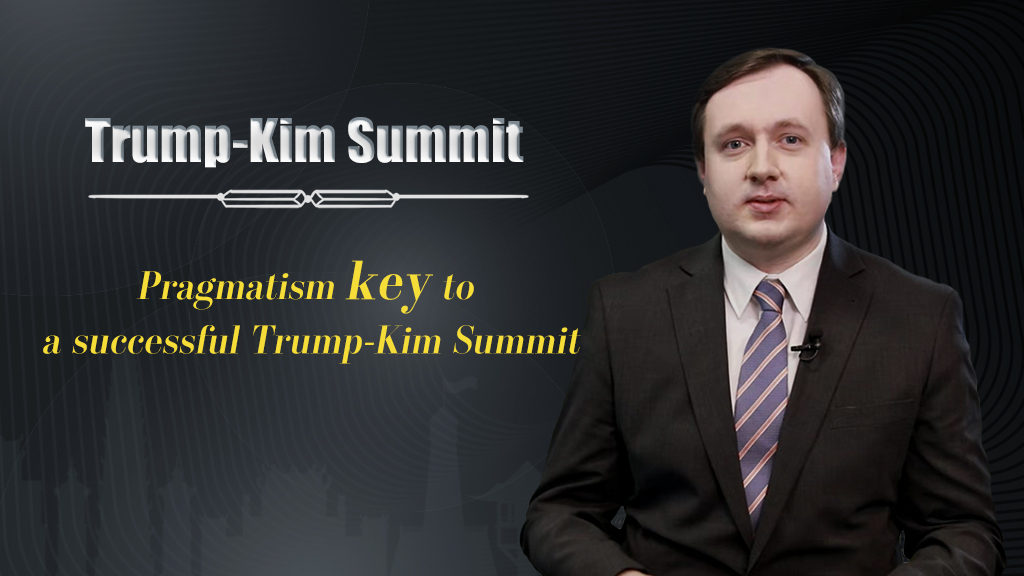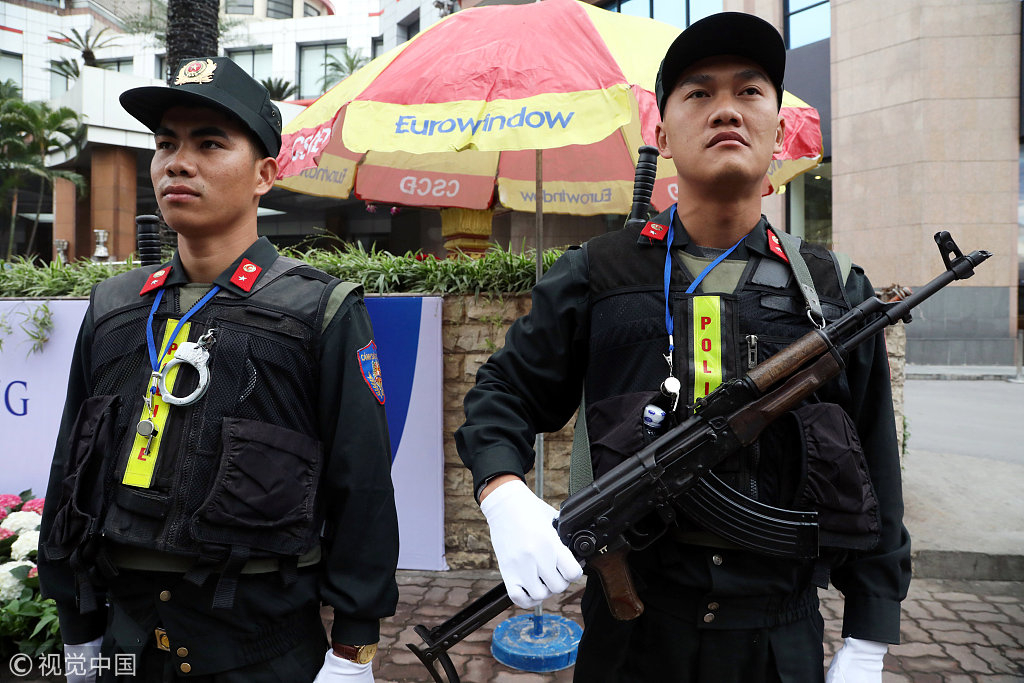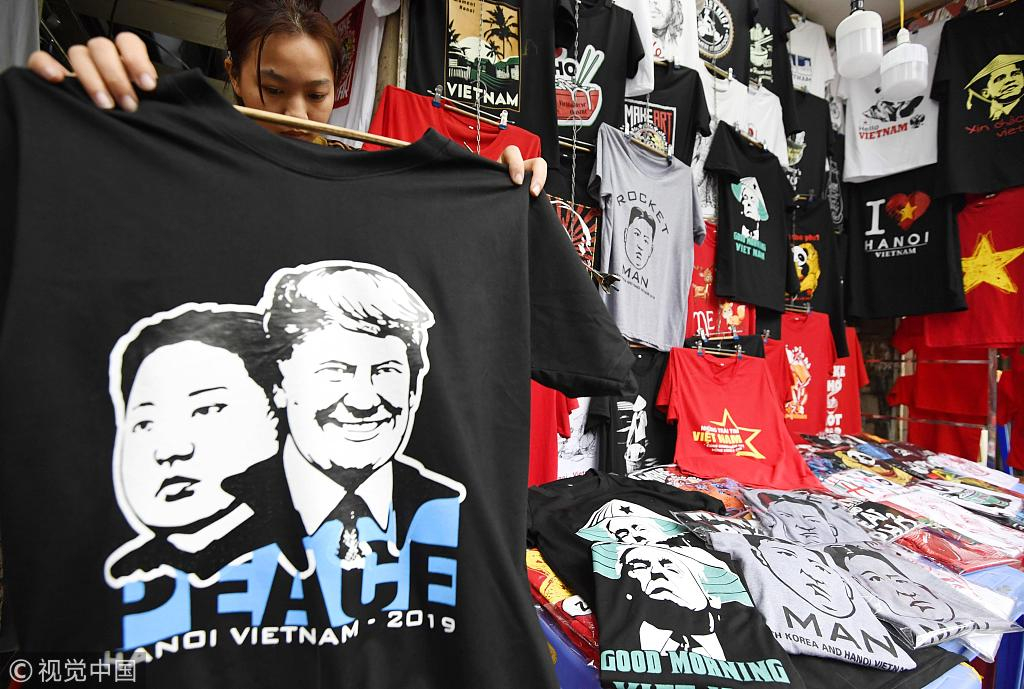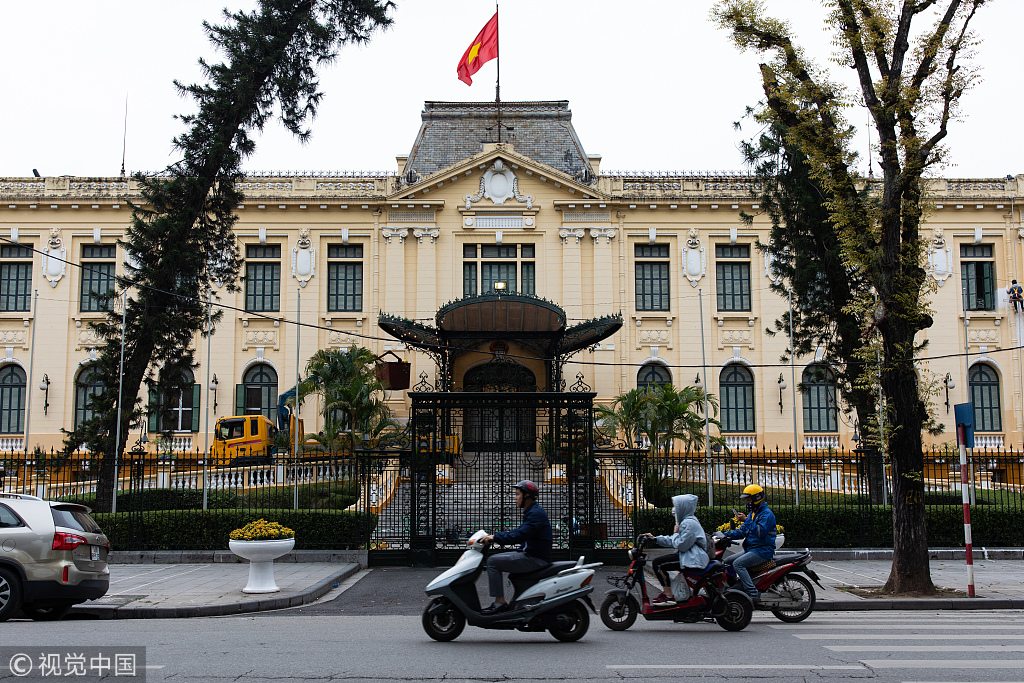
Opinion
08:19, 26-Feb-2019
Pragmatism key to a successful Trump-Kim summit
Tom Fowdy
03:43

Editor's note: Tom Fowdy, who graduated from Oxford University's China Studies Program and majored in politics at Durham University, writes about international relations focusing on China and the Democratic People's Republic of Korea. The article reflects the author's views, and not necessarily those of CGTN.
On February 27, the Democratic People's Republic of Korea (DPRK) leader Kim Jong Un will meet with U.S. President Donald Trump in Hanoi for a second round of face-to-face talks, following an inaugural meeting in Singapore last year.
The eyes of the world will be on this summit with hopes that it can lay the foundation for bringing an end to the 69-year-old Korean conflict and resolving the DPRK nuclear crisis.
But what can we realistically expect from it? And what do both sides need to do in order to secure a positive outcome?
I believe that pragmatism will be the key.

Police officers stand guard at Melia Hotel ahead of the Trump-Kim summit in Hanoi, Vietnam, February 25, 2019. /VCG Photo
Police officers stand guard at Melia Hotel ahead of the Trump-Kim summit in Hanoi, Vietnam, February 25, 2019. /VCG Photo
Only by being willing to prudently compromise, offer mutual concessions, and settle for a confidence-building step-by-step approach can anything in substance be achieved from this meeting. Both sides must be willing to step out of their comfort zone and provide something meaningful.
Both sides are coming into this summit with rival geopolitical objectives, which have been entrenched in a relationship that for over 70 years has been characterized with crisis, hostility and extreme distrust.
The United States has made it clear that it aims to achieve what it terms the "final and fully verified" denuclearization of the Korean Peninsula. Special representative Stephen Biegun might have hinted at compromise in recent speeches, but Washington has repeatedly vowed to maintain sanctions pressure on the country until its overriding goal has been reached.

T-shirts emblazoned with images of DPRK leader Kim Jong Un and U.S. President Donald Trump are found at a store in Hanoi, February 23, 2019. /VCG Photo
T-shirts emblazoned with images of DPRK leader Kim Jong Un and U.S. President Donald Trump are found at a store in Hanoi, February 23, 2019. /VCG Photo
Although the realistic prospects of this goal are understood well by the administration, it is nevertheless clear on the fact that this summit must produce tangible and meaningful progress towards achieving that outcome.
Pyongyang holds a very different perspective. It has spent almost 20 years accumulating a nuclear capability, which it could use as a bargaining chip with Washington to set its own terms as a way to resist external pressure and ensure the survival of Kim's rule.
Pyongyang knows well that these nuclear and missile capabilities represent leverage, and that to bargain them all away for short-term sanctions relief is really a non-starter. Under no circumstances is Kim out to jump into a bad deal with Washington. His aim is to secure as much as he can from this summit while giving up very little. He is not going to allow himself to fall back into a position of weakness.

The State Guest House in Hanoi, Vietnam, February 25, 2019. /VCG Photo
The State Guest House in Hanoi, Vietnam, February 25, 2019. /VCG Photo
Of course, that doesn't mean there is nothing to offer. Kim and his officials have been very careful in emphasizing that they want to transform relations with the United States in a positive way. There are things he is willing to give, such as offering verified nuclear inspections, closing down the Yongbyon Nuclear Facility and also ending his pursuit of intercontinental ballistic missile capabilities.
But they will come with a price, which will be strictly equivalent to what America is prepared to offer.
I can see already that Trump is under pressure from domestic political opposition to give little. However, this summit depends upon him being bold. Although both sides have their constraints and obstacles, there is still space for a deal that can set a legacy, something that goes beyond the mere text of last year's agreement.
This is a historic moment for both countries to transform the way they relate to each other. They never will be close allies, but there is a window to create a new stability in the U.S.-DPRK relations. But if we are to get that, both sides must meet halfway.
(If you want to contribute and have specific expertise, please contact us at opinions@cgtn.com.)

SITEMAP
Copyright © 2018 CGTN. Beijing ICP prepared NO.16065310-3
Copyright © 2018 CGTN. Beijing ICP prepared NO.16065310-3